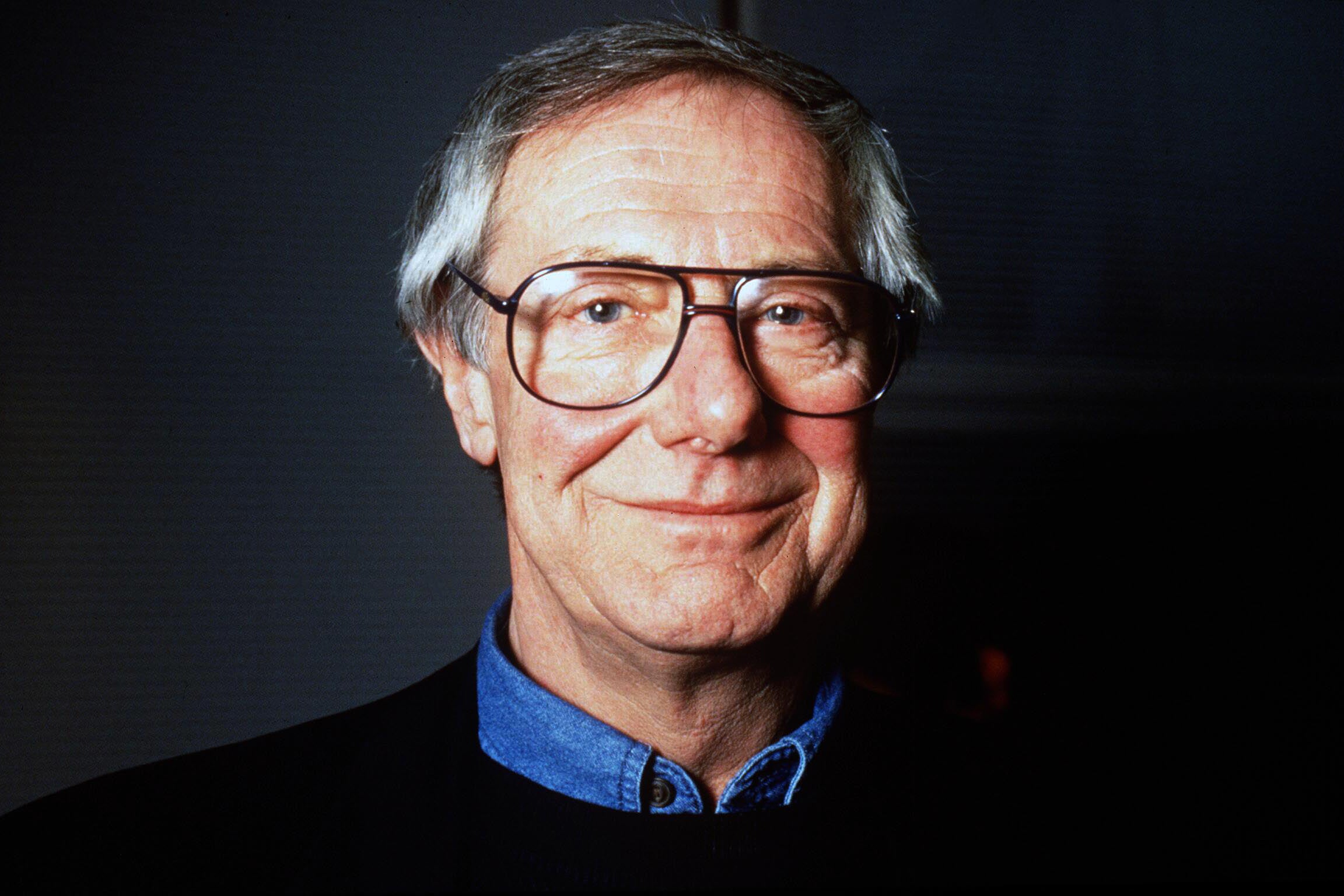Barry Norman: The face of the BBC’s ‘Film’ programme for 26 series
The critic dedicated his life to arts journalism and remained a Radio Times columnist until his death

For more than a quarter of a century, Barry Norman was the doyen of film critics on television as the face of the BBC’s flagship movie review programme, from Film 72 until his last series, Film 98, with just a short break in the middle. His relaxed, affable style and middlebrow approach satisfied movie buffs as well as mass audiences.
Norman interviewed the biggest stars in Britain and Hollywood, and considered directors to be more “intelligent” than actors. He described Warren Beatty as “anally retentive” and ended up in an argument with John Wayne, who called him a “goddam pinko liberal faggot”, while Richard Burton fell asleep on him.
However, Norman’s celebrity status was confirmed when the satirical puppet series Spitting Image introduced his character into sketches lampooning actors and directors. The trademark bags under his eyes were there, along with a fictitious large wart on the forehead – about which Norman was not pleased – and the catchphrase: “And why not?”
Rory Bremner had actually introduced that line in his impersonations of Norman on TV. Once it stuck, the presenter adopted it himself and titled his 2002 autobiography And Why Not? Memoirs of a Film Lover.
Norman was born in London into a film family, son of Leslie, who spent 30 years at Ealing Studios, producing The Cruel Sea and directing Dunkirk, and Elizabeth (née Crafford), an assistant film editor.
When a German bomb landed in the back garden of their house in Edgware, Middlesex, during the Second World War, they moved to Taunton, Somerset, then Hassocks, West Sussex, before returning home.
On leaving Highgate School, Norman opted for a career in journalism. He joined the Kensington News as a reporter in 1951, then moved to Africa two years later, working on The Star in Johannesburg and the Rhodesia Herald in Salisbury (now Harare). He returned to London in 1955 as a gossip writer on the Daily Sketch, before switching to the Daily Mail in 1958 as a reporter, then show business editor.
In 1971, after being made redundant by the Mail, Norman freelanced, writing TV reviews for The Times, a weekly column for The Guardian and articles for The Observer and Sunday Mirror. He also scripted the Mail’s cartoon strip Flook.
An appearance on the BBC’s Late Night Line-Up panel in 1972 led to an offer to join a team of presenters on the Film series, following its launch in the London area in 1971. Within a year, Norman was the sole host.
Presenting the 1982 run of the arts documentary series Omnibus meant that Norman was absent from Film 82, but he returned a year later. However, he was always frustrated by the BBC’s failure to schedule the late-night show at a regular time and, after completing Film 98 – his 26th series – moved to Sky to host Barry Norman’s Film Night (1998-2001).
He also wrote and presented many documentary series, including The Hollywood Greats (1977-84), The British Greats (1980) and Talking Pictures (1988). On radio, he was a presenter of the Today programme between 1974 and 1976, and the travel shows Going Places (1977-81) and Breakaway (1979-80), as well as being first chair of The News Quiz (1977-8).
Norman remained a Radio Times columnist up until his death and, as an author, wrote film books and 10 novels. He received the Richard Dimbleby Award in 1981 and was made CBE in 1998.
In 1957, Norman married Diana Narracott, a journalist and author of historical crime fiction who died in 2011. Two years later, his book See You in the Morning provided a candid account of their marriage – successful, he wrote, because they “gave each other space”. He is survived by their daughters, Samantha and Emma. His sister Valerie is a script supervisor in Hollywood.
Barry Leslie Norman, journalist and broadcaster, born 21 August 1933, died 30 June 2017
Subscribe to Independent Premium to bookmark this article
Want to bookmark your favourite articles and stories to read or reference later? Start your Independent Premium subscription today.

Join our commenting forum
Join thought-provoking conversations, follow other Independent readers and see their replies